I'm using GetOpenFileName function from Winapi, and I'm applying filter to the select file dialog.
THIS works perfectly:
LPSTR mfilter = "Filter\0*.PDF\0";
ofn.lpstrFilter = mfilter;
if(GetOpenFileName(&ofn)){
...
THIS fails (dialog opens but no filters apply):
string mfilter = "Filter\0*.PDF\0";
ofn.lpstrFilter = mfilter.c_str();
if(GetOpenFileName(&ofn)){
...
I need to use std:string because I'm getting the file extension via parameters and this type facilitates the concatenation but I'm getting incompatibility issues...
This would be my code if it worked as expected (IT FAILS the same as previous example):
const char * ext = &(4:); //Ampersand parameter (from CA Plex) It contains "PDF"
string mfilter = "Filter\0*." + ext + "\0"; //Final string: Filter\0*.PDF\0;
ofn.lpstrFilter = mfilter.c_str();
When I use this method, I'm getting runtime exception:
string mf;
mf.append("Filter")
.append('\0')
.append("*.pdf")
.append('\0');
ofn.lpstrFilter = mf.c_str();


